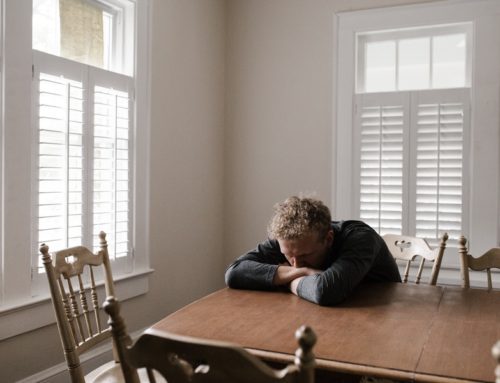We are living in confusing and frightening times. Many of us are dealing with high levels of stress, uncertainty, and even fear. For some of us, that stress and anxiety will develop into a full-blown mental health crisis. Although one might think that an oncoming crisis would be easy to spot, in these times, it can be far from apparent that a loved one is suffering. To help you identify situations that need help, we’re discussing some of the most important signs and symptoms of a crisis.
Early Signs of a Mental Health Crisis
These signs and symptoms come before an individual completely loses the ability to manage their life, but the time from the onset of symptoms to a collapse vary widely. As well, people who are experiencing a psychological crisis may not show all of the symptoms we’ll review, but these are the most common.
- Social withdrawal. People experiencing struggles with their mental health often absent themselves from activities they normally participate in. They also tend to draw in on themselves and become less social than what’s normal for them. This can be due to apathy and a decrease in energy.
- Poor self-care. People may stop bathing and start neglecting their personal hygiene. This goes further than simply staying in sweatpants all weekend. A noticeable decrease in a person’s typical level of hygiene signals trouble.
- Behavior changes. A person may abandon hobbies and activities they normally enjoy. They may start failing to meet their obligations, miss work, or fail to pay bills. “Behavior changes” is a big, broad category, but a good rule of thumb is to be attentive to sudden divergences in a person’s general behavior.
- Mood changes. A person may become unusually cynical or bleak, but an extremely elevated, unusual mood is also a warning side. An unusually ebullient mood may signal mania.
- Excessive alcohol or drug use. A person who increases their levels of alcohol or drug use may be experiencing a mental health crisis. Using more sharply more alcohol or marijuana, especially alone, is indicative of a problem.
- Voicing suicidal thoughts. A person may say things like “I wish I wasn’t here,” or “Everyone will be better off without me.” Even though they aren’t explicitly saying they’re suicidal, statements like these indicate that a person may be having thoughts of suicide. If someone you know is talking about suicide and you believe they’re at risk, contact a mental health professional, call 911, or contact the National Suicide Prevention Line at 1-800-273-8255.
If you’ve got a loved one in crisis, Damaris Aragon, ARNP, BC provides a full spectrum of mental health care to people in Spokane, Washington, and surrounding areas. She focuses on providing personalized, compassionate care that adheres to current evidence-based standards. Reach out to Damaris through her contact page or calling 509-342-6592.






